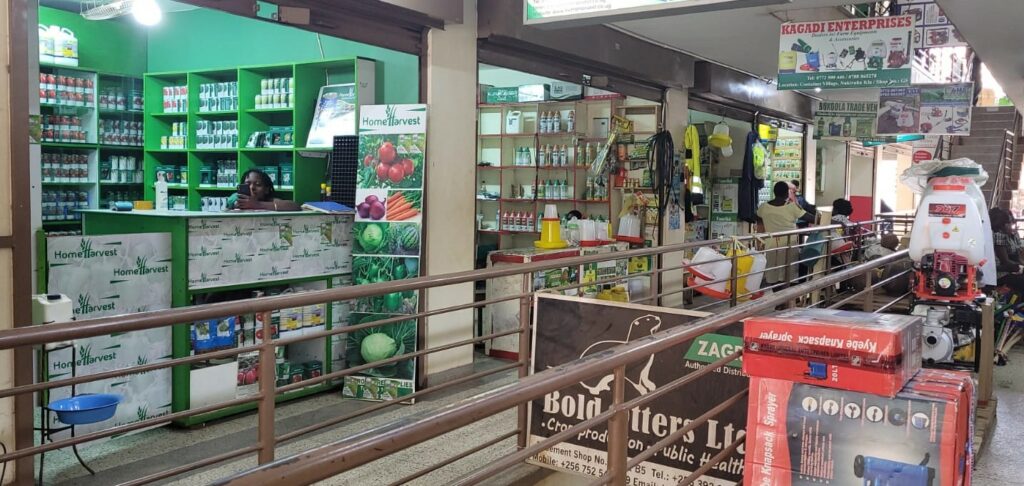Youth in agriculture: Meet Anthony Ssenyonga, an agri-entrepreneur in Uganda
Anthony Ssenyonga, 29, is an agro-input dealer, plant doctor, and entrepreneur whose innovative use of digital tools is supporting smallholder farmers in his community and beyond. He is a leader among the youth in agriculture in Uganda, inspiring other agri-entrepreneurs. Before his rise as a digital agricultural champion, Anthony was a small-scale vegetable farmer, helping…
How agro-dealer training in Uganda is reducing pesticide risks and making farming safer
Agro-dealers can play a critical role in sharing knowledge about pesticide safety and biopesticides. Misusing chemical pesticides harms farmers, consumers, animals and the environment. However, safe handling of pesticides and the use of nature-based alternatives help to reduce these risks. Nevertheless, many farmers lack access to relevant information. It has been estimated that less than…
Empowering agro-dealers: A toolkit for safer and sustainable farming in Uganda
PlantwisePlus has reached a milestone in relations with the government of Uganda. On 14 November, the programme handed over a training toolkit for a module on lower-risk plant protection products to the Ministry of Agriculture, Animal Industry and Fisheries (MAAIF). A team collaboratively developed the resource to help train Uganda’s agro-dealers. It forms part of…
Understanding mango mealybug – a significant crop pest
The mango mealybug (Rastrococus invadens) is an invasive pest outside its native home in Southeast Asia. It threatens mango crops, particularly affecting smallholder farmers. This scale insect pest lowers mango yields and quality, and because it’s a quarantine pest, it can also impact trade.
Blueprint for change: how a training manual will support pesticide risk reduction in Uganda
In the evolving landscape of pesticide regulation and safety, well-crafted training manuals are indispensable tools. They ensure that people who use pesticides can effectively navigate and implement risk reduction strategies. These knowledge resources can become a blueprint for changing behaviour around pesticides.
Can Uganda’s agro-dealers become champions of sustainable pest control?
The global surge in pesticide use has helped to increase agricultural productivity. However, it has also raised alarms about the risks they pose to health and the environment. In many low- and middle-income countries, agro-input dealers (commonly called agro-dealers) play a central role in supplying farmers with inputs such as fungicides, herbicides and insecticides. They…










